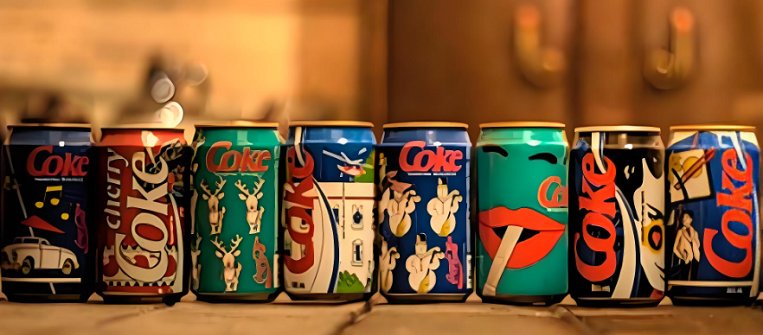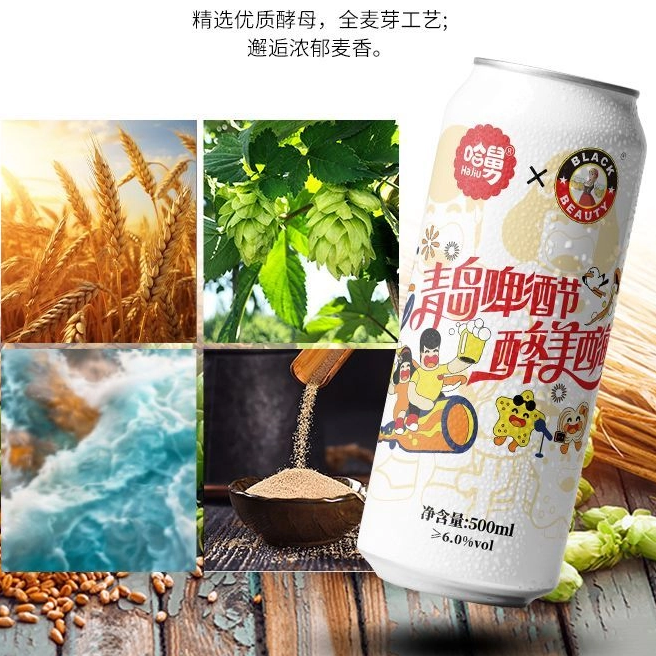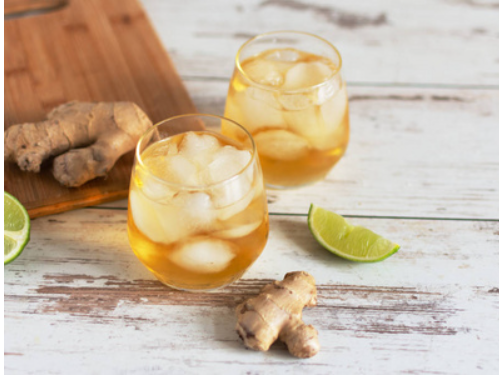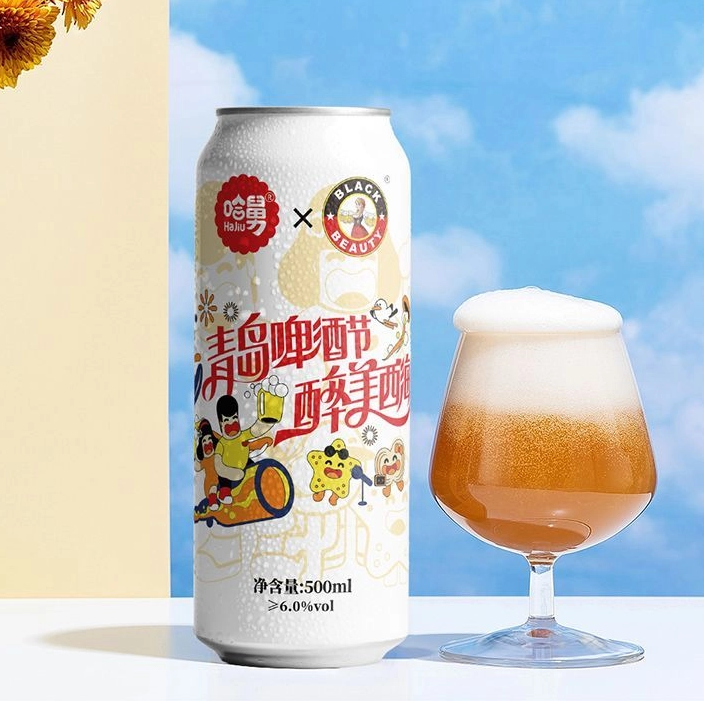Private label beverage manufacturing is a booming segment within the food and beverage industry, allowing companies to produce unique, branded beverages without needing to build and operate a production facility. This manufacturing model lets businesses, entrepreneurs, and retailers market products under their own labels, leveraging third-party manufacturers to handle the production side. With its rising popularity, private labeling is becoming an essential way for brands to enter the market quickly and cost-effectively, offering everything from water and soda to specialized health and wellness drinks.
Understanding Private Label Beverage Manufacturing
Private label beverage manufacturing involves working with third-party companies that handle the beverage’s production while the brand takes care of packaging, branding, and marketing. This approach is ideal for businesses that want to offer a custom product without the overhead of in-house manufacturing. The manufacturer, often experienced in producing specific types of beverages, enables brands to tap into industry expertise and streamlined processes. Today, private-label options are available for nearly every type of beverage, from coffee to organic juice to energy drinks, responding to consumer demand for diversity and uniqueness in product choices.
The Benefits of Private Label Beverage Manufacturing
One of the main advantages of private label manufacturing is the ability to control costs while maximizing profit. With no need to invest in manufacturing facilities or a production workforce, companies can focus their efforts on building a brand, choosing product flavors, and differentiating their product through packaging and marketing. Additionally, it enables a quicker time-to-market since brands don’t have to worry about setting up and maintaining the infrastructure required for manufacturing. Private labeling also provides businesses the flexibility to experiment with different products or flavors as market trends evolve, giving them a strategic edge in an increasingly competitive industry.

Types of Private Label Beverages
Private label beverages encompass a wide range of products. Each type has its distinct requirements and considerations.
Non-Alcoholic Beverages: This category includes options such as soda, juices, teas, energy drinks, and bottled water. Non-alcoholic beverages offer broad appeal and flexibility in flavor profiles and health-focused ingredients.
Alcoholic Beverages: Private labeling extends to alcoholic drinks, such as beer, wine, and spirits. Brands pursuing this path often need to navigate stricter regulations and higher production costs but can stand out with unique flavor profiles and branding.
Functional and Health Beverages: Health-conscious consumers are fueling demand for functional drinks, like protein shakes, wellness shots, and herbal teas. This category allows brands to cater to fitness and wellness trends, targeting a growing demographic seeking healthier alternatives.
Key Components in Starting a Private Label Beverage Brand
Successfully launching a private label beverage starts with comprehensive market research. Identifying a niche in the market is crucial for carving out a space among competitors. For instance, research could reveal a demand for organic energy drinks, a niche that offers room for a health-focused, sustainable brand. Competitor analysis helps in understanding market gaps, customer preferences, and potential pricing strategies. By defining a unique value proposition, brands can distinguish themselves, whether through natural ingredients, exotic flavors, or sustainability practices.
Choosing a Private Label Beverage Manufacturer
Finding the right manufacturing partner is one of the most critical steps in starting a private label beverage brand. Manufacturers differ in production capacity, location, expertise, and quality standards, so brands need to carefully evaluate their options. Some key factors include the manufacturer’s certifications, their ability to provide research and development (R&D) services, and their compliance with food and safety regulations. With the right partner, brands can also gain access to a wealth of knowledge in formulation and testing, ensuring that their product not only meets quality standards but also stands out in the market.

Formulation and Recipe Development
A beverage's formulation is the heart of its appeal. Brands can choose from custom recipes, where the product is entirely unique to their specifications, or standard formulations, where a proven recipe is used. Custom formulations involve close collaboration with the manufacturer’s R&D team to create a unique taste, texture, and nutritional profile. For health and wellness drinks, brands may focus on natural ingredients, while energy drinks might emphasize a blend of caffeine and vitamins. Quality control plays a significant role here, as ensuring consistency from batch to batch is essential for building consumer trust and brand loyalty.
Packaging and Branding
Packaging design is crucial in private label beverages, as it often determines a product’s shelf appeal and brand identity. Brands can choose from a variety of packaging options, including bottles, cans, cartons, and eco-friendly alternatives. Once the packaging format is chosen, the next step is label design, which should align with the brand’s image and adhere to all regulatory requirements for ingredient listing, nutrition facts, and warnings (especially for alcoholic products). Packaging and branding are often the first points of interaction with consumers, making them essential for creating a memorable impression.
Navigating Regulatory and Compliance Requirements
The beverage industry is highly regulated, and compliance with laws is non-negotiable for private label brands. In the U.S., the Food and Drug Administration (FDA) oversees most beverage regulations, ensuring that products are safe for consumers and accurately labeled. Alcoholic beverages have additional regulatory requirements, including specific labeling and distribution laws. Brands need to be proactive in understanding these requirements and working closely with their manufacturer to ensure that their products meet all legal standards, which helps in avoiding costly recalls and penalties.
Quality Control and Assurance
Maintaining high-quality standards in every production batch is crucial for private label brands. Quality control measures ensure that the product tastes, looks, and smells the same with each production run. This consistency builds consumer trust and can enhance the brand’s reputation. Manufacturers often implement quality checks at different stages of production, from raw material inspection to finished product testing, guaranteeing safety, taste, and compliance with regulatory standards. Implementing rigorous quality assurance also helps in identifying issues early, reducing the risk of defective products reaching the market.

Logistics and Supply Chain Management
Logistics and supply chain management are the backbones of any successful beverage brand. This includes warehousing and inventory management, particularly for brands with seasonal or high-demand products. Working with an efficient supply chain helps streamline distribution to retailers, e-commerce channels, and other distributors, ensuring timely delivery and reducing costs. Brands should consider transportation and storage needs specific to their product, as beverages often require temperature control and secure handling to preserve freshness and quality.
Marketing and Launching Your Beverage Brand
To capture consumer attention, a well-crafted marketing plan is essential. Successful beverage brands often rely on digital marketing, including social media, influencer partnerships, and targeted advertising. In addition, building partnerships with distributors and retailers can help increase visibility in physical stores. A strong online presence, including a website and social media channels, provides credibility and allows brands to connect with consumers directly, fostering brand loyalty and engagement.
Cost Analysis and Financial Planning
Launching a private label beverage brand involves several upfront costs, such as manufacturing, packaging, and marketing expenses. A comprehensive financial plan considers these initial investments and projects future revenue and profit margins. Brands should also factor in ongoing costs, like warehousing, distribution, and quality control, which impact the overall budget. Understanding the cost structure and setting a pricing strategy helps position the product competitively while ensuring profitability.

Common Challenges in Private Label Beverage Manufacturing
While private label manufacturing offers numerous advantages, brands may face challenges like production delays, inventory issues, and quality control discrepancies. Adapting to changing consumer demands can be another hurdle, especially as trends shift towards healthier and more sustainable products. Brands can mitigate these challenges by choosing reliable manufacturing partners, staying updated on market trends, and maintaining a flexible approach to product offerings.
Conclusion
Starting a private label beverage brand is a dynamic opportunity for businesses to enter the beverage industry with a unique product. By partnering with experienced manufacturers, defining a clear brand identity, and adhering to quality and regulatory standards, businesses can achieve both profitability and consumer loyalty. With the right strategy and a commitment to quality, private label beverage manufacturing offers a path for new brands to grow and succeed in a competitive market.
FAQs
What is the initial cost of starting a private label beverage brand?
Initial costs vary based on the type of beverage, packaging, and marketing strategies. On average, the investment ranges from a few thousand to several tens of thousands of dollars.
Do I need FDA approval for my private label beverage?
Yes, all beverages sold in the U.S. must comply with FDA regulations for safety and labeling. Manufacturers often assist with ensuring compliance.
How long does it take to launch a private label beverage?
The timeline can range from a few months to a year, depending on product complexity, regulatory compliance, and the efficiency of the manufacturer.
Can I sell private label alcoholic beverages?
Yes, but selling alcoholic beverages involves additional regulatory steps, including licenses and compliance with state and federal laws.
Is it possible to change formulations after launch?
Yes, brands can adjust formulations based on market feedback, although this process may require new testing and regulatory compliance efforts.




























